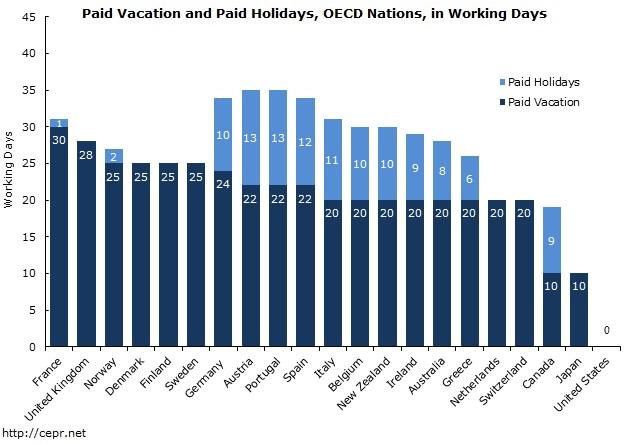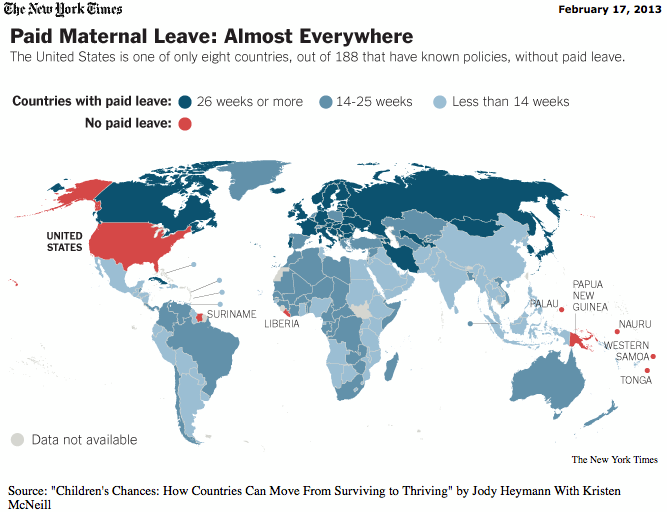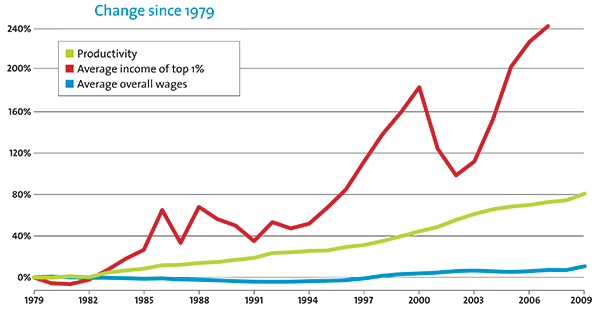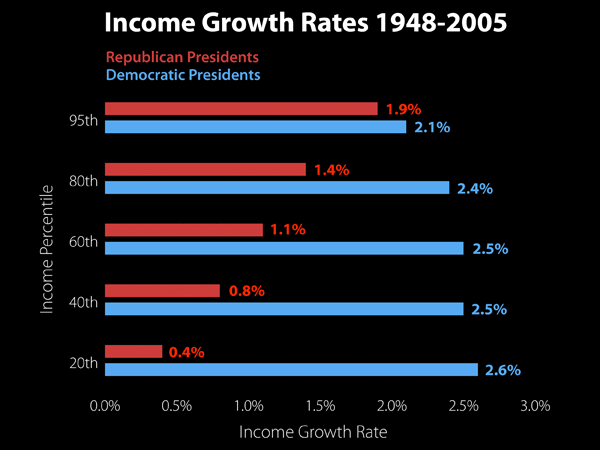
“‘The United States is the only advanced economy in the world that does not guarantee its workers paid vacation days and paid holidays,’ said John Schmitt, senior economist and co-author of the report. ‘Relying on businesses to voluntarily provide paid leave just hasn’t worked.'”
A new CEPR report finds — once again — that Americans are working inordinately hard. “Workers in the European Union are legally guaranteed at least 20 paid vacation days per year, with 25 and even 30 or more days in some countries. Canada and Japan guarantee at least 10 days of paid vacation per year. U.S. workers have no statutory right to paid vacations.”




